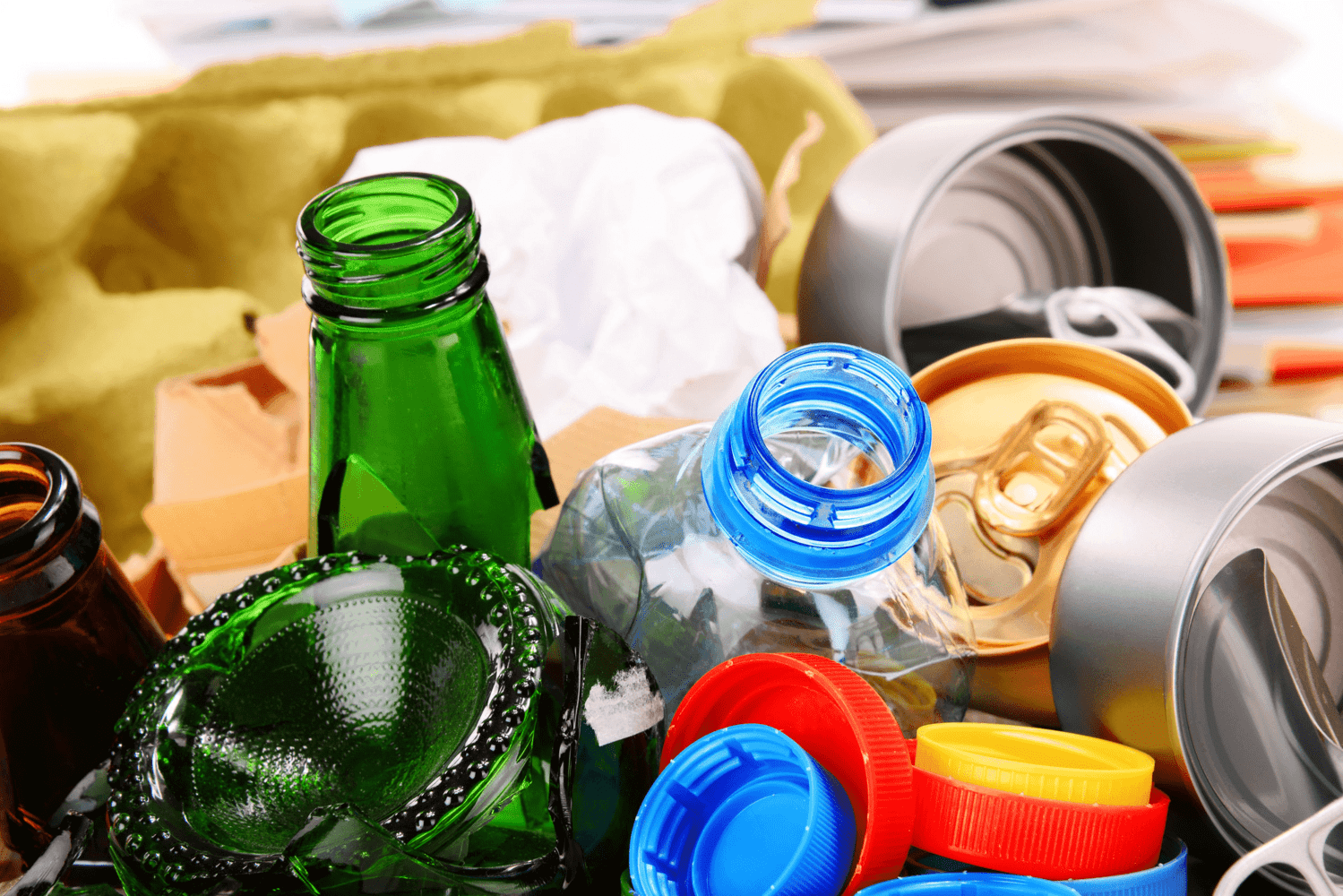China’s bid to end all waste imports by 2020 has plunged the global recycling network into an unprecedented crisis. Two cities are showing the way out of this mess by reimagining how they approach waste: not as a problem to be exported, but as the building blocks for a new kind of economy at home.
For decades, cities around the world have relied on being able to export the enormous quantities of waste they generate to China for recycling. Seeking to address domestic environmental problems, in 2018 China introduced a recycling import ban which brought to an end this cheap fix for waste management authorities, initiating the first stage of restrictions on imports of a range of material categories including plastics, metals, textiles, and wood.
These restrictions were further tightened at the start of this year, and in late March Qiu Qiwen, China’s director of Ministry Ecology and Environment (MEE) solid waste division, revealed to Reuters that the country would go further still. “China will further tighten restrictions on waste imports and eventually aims to realize zero waste imports by 2020,” he said.
China recycling import ban challenges
The China recycling import ban has major implications – for plastics alone, a University of Georgia study estimated 111 million metric tons of waste will be displaced by 2030. No longer able to export waste out of sight and finding domestic recycling too expensive to ramp up, urban administrators across the United States, Europe, and the Asia-Pacific region have begun resorting to desperate measures to deal with this sudden change – even sending the waste sorted by their citizens into recycling bins straight on to the same landfill and incinerators as non-recyclable rubbish.
With alternative destinations such as India imitating China’s recycling import ban, cities are having to face up to the fact that their trash can no longer be dumped out of sight. But crisis breeds opportunity, and just as climate change is prompting an inevitable transition from finite fossil fuels to renewable energy, the Chinese ban on waste imports could catalyze a move away from the consumption and disposal of finite materials towards a new kind of economic system.
According to Metabolic cities & industries consultant Andrew McCue, a growing collection of urban leaders are starting to realize the full economic potential of a circular economy which is waste-free and regenerative by design. “Cities that send recycling to incinerators are burning potentially valuable materials – this is an economic opportunity going up in smoke,” he said. “As they say, you should never let a crisis go to waste, and there are few things more wasteful than sending carefully-sorted recycling straight to landfill.”
To avoid this wastage, a recycling system based on whatever happens to end up on the curbside is not enough. Cities need to develop long-term strategies to cultivate a system where everything is designed to be cycled continuously within the economy, where products of high value can be developed out of material streams, and where the economic benefits can flow through to all. Here are two cities showing the way forward:

Rotterdam, The Netherlands
Home to Europe’s largest port, Rotterdam was once a regional hub for exporting waste to China, but is now reinventing itself as a hub for transforming discarded materials into valuable new products. Drawing on last year’s Circular Rotterdam study, city administrators are rolling out a circular economy plan to support their ambition to create 3,500 to 7,000 new jobs and reduce material consumption by 50% by 2030.
The city plans to get moving on this through the addition of circular requirements to construction and demolition permits, and to city procurement of goods and services. Rotterdam features a number of hubs for circular economy entrepreneurs, including a site at the port and another at a former aquatics centre, and plans to develop an upcycle mall where residents can bring their waste in to be transformed into new, high-value products, and to roll out a network of decentralized materials processing facilities where the construction sector can bring their waste materials.

Metabolic analyzed waste streams from Rotterdam’s construction, food and energy, consumer goods, and healthcare sectors.
To tackle plastics, the city – already home to one high-tech automated sorting facility – is building another cutting-edge plant that routes waste through a magnetic bath to extract plastics of a high enough purity to be transformed into packaging, and is also looking to change regulations that prohibit using second-hand plastics for food packaging.

Charlotte, North Carolina
In Charlotte, North Carolina, a former horse barn is being transformed into a hub for the first US city to commit to the circular economy as a public sector strategy, with the aim to be waste-free by 2050. The Innovation Barn, due to open later this year, will introduce locals to how the circular economy works with features such as a glass enclosure where they can see soldier fly larvae composting waste, and provide space for a range of upcycling businesses such as Carolina Urban Lumber, which taps into the 136,000 kilograms of usable wood thrown away in Charlotte every day to create products like boutique end tables and kitchen islands – one example of how the waste wood no longer exportable to China could be used as building blocks for economic development back at home.
The hub is one part of a Circular Charlotte strategy that seeks to capitalize on the $111 million in material value ready to be unlocked in Charlotte’s 900,000 tons of annual waste. Plastics alone represent over $35 million in potential revenue, the Circular Charlotte report found.

Five business cases proposed in the report range from incentivized reverse logistics programmes to using the aforementioned soldier fly larvae as feedstock for poultry farms. Of particular relevance to the China recycling import ban is the plan to divert 95,000 kilograms (209,000 pounds) of textiles from landfill by creating a closed-loop business model for linen, towels, and uniforms sourced from hotels and government bodies. The business case is estimated to generate profits of over $200,000 a year from collection revenue and product sales, offering an example for urban centres affected by China’s crackdown on textile waste imports.

Era of cheap recycling exports over
Both Rotterdam and Charlotte are taking the first steps to moving towards a circular economy – a transition that requires a cocktail of measures including regulatory changes, city procurement policy adjustments, education initiatives, and targeted investments. It is a shift that could take decades to complete, but with the era of cheap recycling waste exports coming to an end, there’s never been a more compelling time for city leaders to join the movement towards a zero waste future.
Read more about Circular Charlotte solutions here, and Circular Rotterdam solutions here. To find out about circular waste management solutions for your city, reach out to Metabolic cities & industries consultant Andrew McCue at [email protected]






